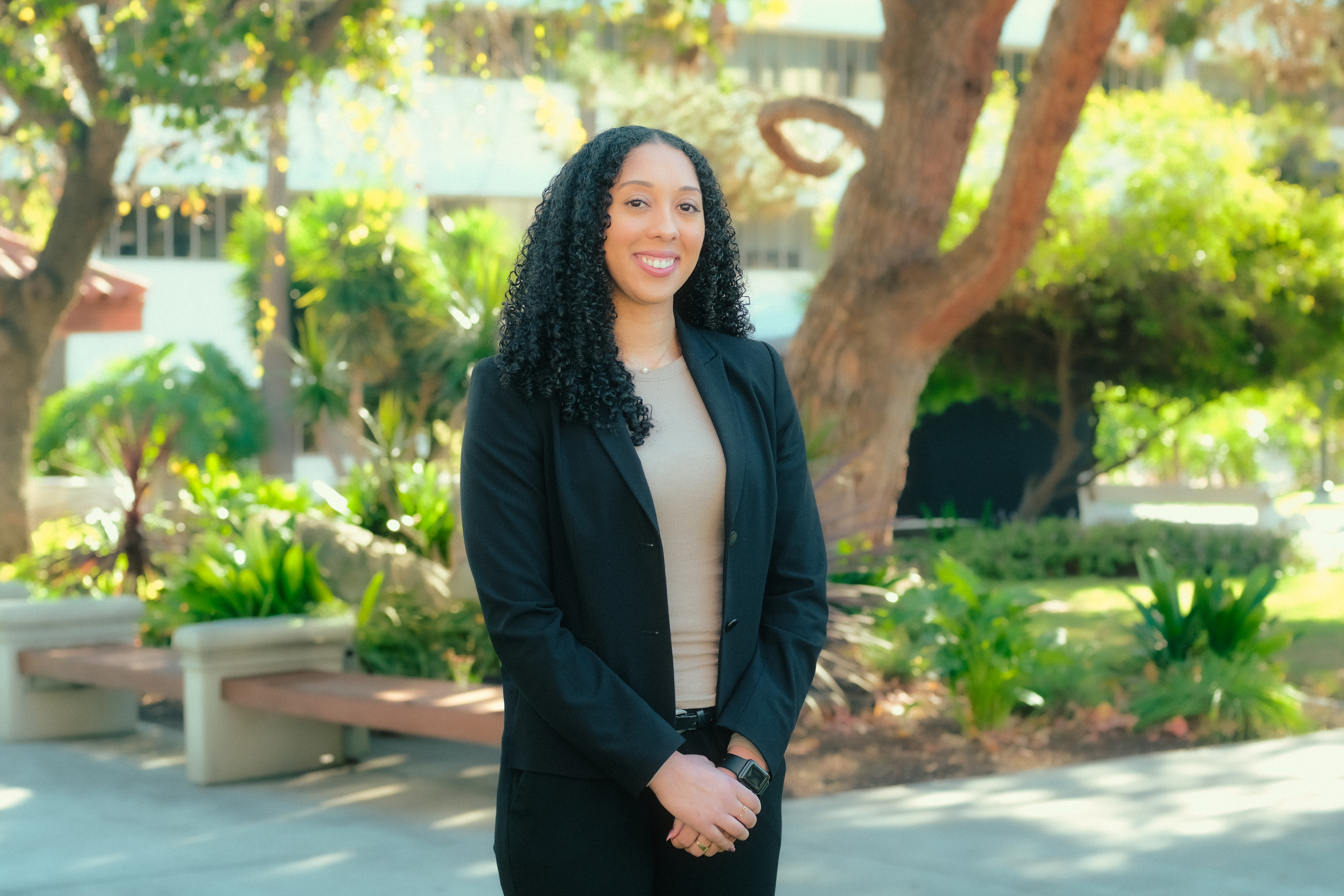Doctoral student finds a calling in servant leadership
Brenna Leon examines academia with a critical lens as she looks to ensure BIPOC students have positive experiences in higher ed.

As a young professional in higher education and a Ph.D. student at San Diego State University, Brenna Leon (’17, ’20) isn’t quite sure where her path in academia will take her. But as she makes her way, her sense of purpose is crystal clear.
“I still feel like I'm ascending in a way,” Leon said. “I'm not entirely sure what the future holds, but I know I want to remain in a position where I can help others in a servant-leader role. It's not about aspiring to any certain position anymore.
“I just want to help the next generation.”
Leon is already a double alumna of SDSU with a bachelor’s in journalism and a master’s in postsecondary educational leadership-student affairs (PELSA). Now she’s pursuing her doctorate in the Joint Ph.D. Program in Education with Claremont Graduate University — and a vision of servant-leadership focused on expanding access to opportunity for the individuals and communities around her.
Meanwhile, in her day job, she serves as San Diego College of Continuing Education’s public information officer — her second community college position since graduating from the PELSA program.
“It's kind of like both of my degrees have been able to blend in a way that I never would have really imagined,” Leon said of her role as a higher education storyteller.
Raised in Sacramento, Leon came to SDSU with dreams of becoming a television journalist. As a former athlete, she looked at sports reporting as her desired path.
But a study abroad experience the summer before her senior year changed her outlook and aspirations. Taking part in a faculty-led program geared for students generally underrepresented in study abroad, Leon — who identifies as Afro-Indigenous — traveled to the Dominican Republic to examine leadership and identities.
“I think going to the DR really opened my eyes to the education system and how everyone was portrayed out there,” Leon said. “It made me want to get more involved in research studying race and equity.”
For Leon, that meant applying to graduate school.
In the PELSA program and as a graduate researcher with SDSU’s Community College Equity Assessment Lab (CCEAL), she relished the chance to learn more about how students from historically underrepresented groups are portrayed and served in higher education — an exploration that led to ample self-reflection.
“It really challenged me and opened my eyes to a lot of the experiences that I went through in K-12 or as an undergrad,” Leon said. “It made me think critically about how I can change the narrative and make sure other students don’t have a negative experience, or how I can help students have a positive experience like I did on my study abroad trip.”
Media messaging
In her Ph.D. program, Leon is carrying on that work, exploring the impact of media messaging on Black, Indigenous and People of Color (BIPOC) in postsecondary education. She also helps mentor first-year graduate students as a teaching assistant in the PELSA program for lecturer Tina M. King, president of San Diego College of Continuing Education.
It’s all a part of her purpose to make an impact on others.
“First and foremost, as educators and lifelong learners, we have a responsibility to help the next generation,” Leon said. “I have been fortunate to have a lot of great mentors that have pulled that out of me and put me in positions and spaces that I might have shied away from otherwise.”
At SDSU, those mentors include mentors like King, Professor Frank Harris III, Associate Professor Marissa Vasquez and Shareka White, director of the Office of Educational Opportunity Programs, Outreach and Success.
But it also includes her first mentor, her mother Tasha Leon — a longtime educator in Sacramento who instilled in Brenna a love of books and learning.
“She was a single mother who raised me so everything I do is not just for me but for her,” Brenna said. “She was the first in our family to get a college degree, she's been a teacher and she was my first teacher in life. Everything I do is also for her. I give credit to her for the sacrifices she made in raising me to be a strong and compassionate woman in this world.”



